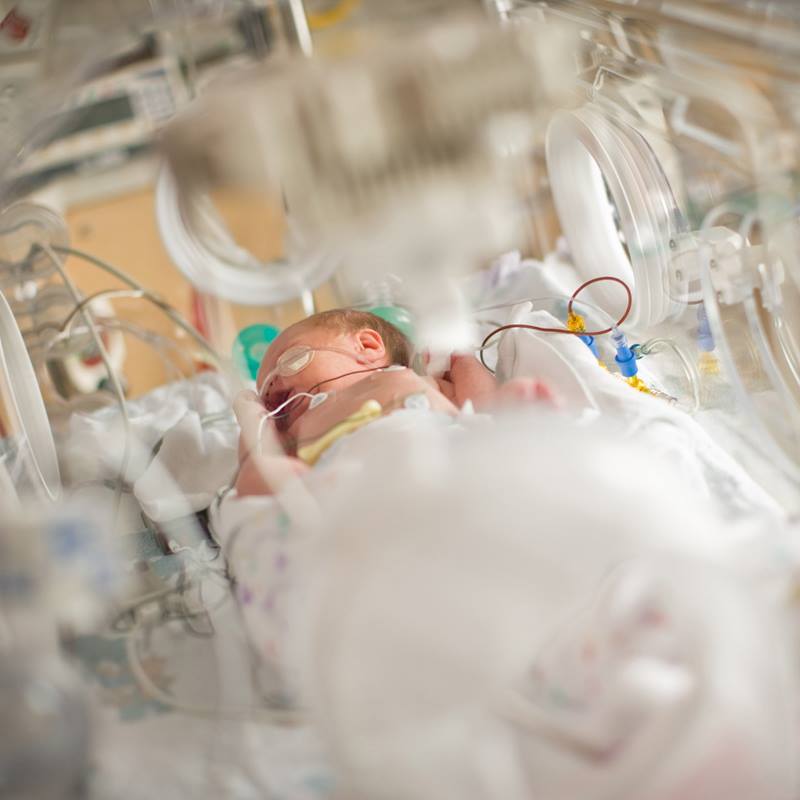Use Intermountain Connect Care®
Learn More.
How can we help?

Families with children receiving treatment in the Intermountain Primary Children’s Hospital neonatal intensive care unit now have a new way of checking in on their baby during the COVID-19 pandemic, thanks to a new camera system installed by the hospital to help families during this time.
The AngelEye camera system has been installed over every child’s bed in the NICU which allows families to see live-streaming video of their child from any smartphone or tablet.
Although the process of obtaining these cameras began last year, families and caregivers say they have proven invaluable during the COVID-19 pandemic. Due to the rising cases of coronavirus in Utah, Primary Children’s implemented visitor restrictions for the safety of patients and caregivers. The NICU has the strictest visitor policies due to the fragile health of the infants there.
Kara Curnen, neonatal critical care director at Intermountain Primary Children’s Hospital, has been leading the efforts for a camera center in the NICU and says the state-of-the art system provides a valuable around-the-clock connection for families.
“The technology has gotten to a point where the cameras are small, and the interface is easy for family and friends to navigate,” said Curnen. “The ability for families to check in on their babies at any time of day is proving crucial for a parent’s mental wellbeing.”
Jessica and Roberto Cedeno of South Jordan have experienced the benefits firsthand. Their daughter Anjali was born on January 11 and was in the NICU for more than five months. When the camera system launched in early May, the family says they were given peace of mind knowing they could see their daughter as much as they wanted.
“It’s been hard because we only got to see her in person about once a week, but part way though her stay they said this new camera system would let us see her all the time,” said Jessica. “It helps take away a lot of the stress and anxiety of the situation when we can check in to see her face.”
The AngelEye system includes a password-protected website where parents can invite up to 24 people to have access to the camera so others can see the child without having to come to the hospital. Doctors and nurses do shut the camera off when a child is receiving treatment, but it’s turned back on once they’re finished. The system is free for patient to use.
“The virtual visits will be an invaluable tool to help with the care and comfort to many families who are dealing with the stressful situation of having a newborn in the NICU and not being able to be there physically,” said Curnen.
Since the system launched, Primary Children’s has enrolled 90 babies in the program with more than 400 participating family members. This has included nearly 22,000 virtual views from 30 different states, and four different countries.
###